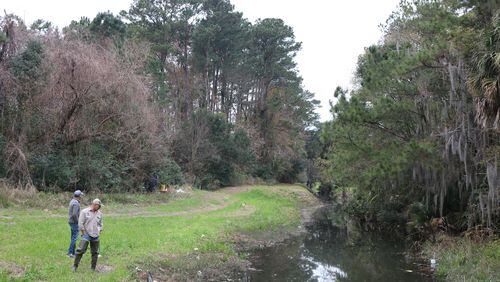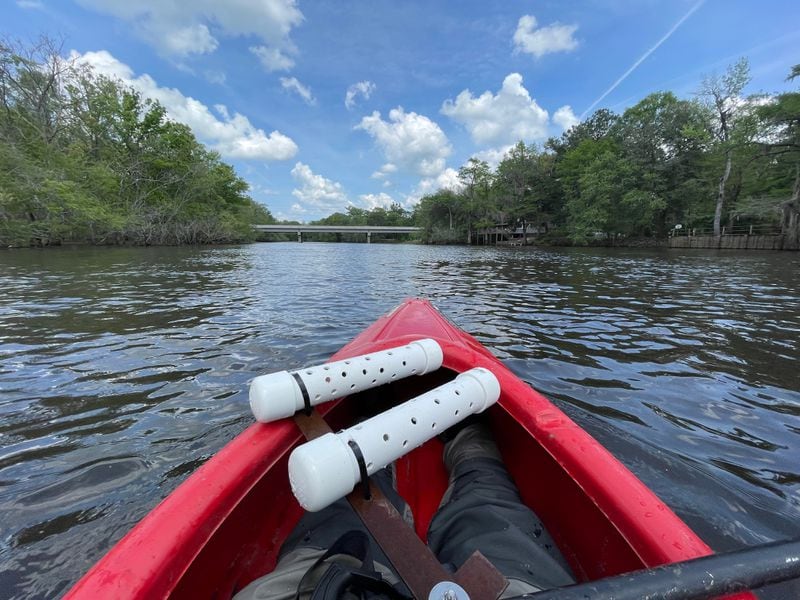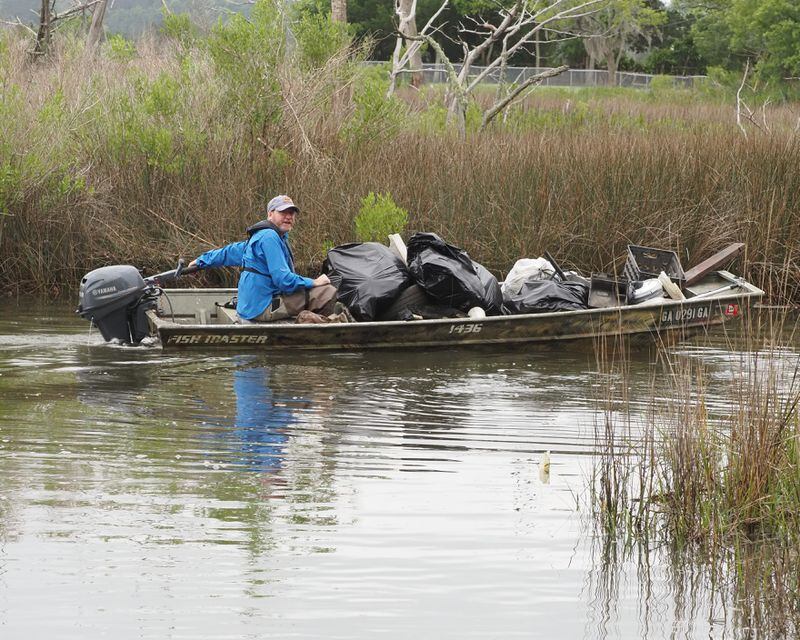Savannah is overhauling its plans to clean up one of the city’s most polluted waterways.
The Vernon River is a tidal waterway that is the backyard of many Savannahians, running from just south of Hunter Army Airfield, past Windsor Forest, to Skidaway Island and its marshes before finally letting out to sea. Despite its coastal beauty that draws people and wildlife alike, runoff and other pollution have caused the river to be listed as "impaired" by the Georgia Department of Environmental Protection for nearly two decades because it regularly exceeds federal and state limits for E. coli pollution.
In a collaboration among local governments, nonprofits, residents and researchers, Savannah community members have finalized a detailed management plan to stem the flow of pollutants in the Vernon.
After a long legacy, participants look to a new chapter
According to the Ogeechee Riverkeeper, the efforts to clean up the Vernon River, which is in the Ogeechee's watershed, began in 2001 when a group of citizens organized to focus on protecting the waterway from urban pollution. This was in response to the Georgia EPD's listing of the river as "impaired," and in 2013 a watershed management plan (WMP) was created.
In 2023, the team's ultimate goal is for the updated WMP is for the Vernon to become consistently within legal e. Coli levels and get delisted as an impaired river by EPD.
WMPs are hefty documents that outline management practices for rivers and the canals, streams, wetlands and stormwater that runoff into them. The new plan outlines updates to identifying and fixing municipal sewage systems, awareness opportunities, infrastructure upgrades and rigorous water testing and monitoring.
Credit: Photo courtesy of the Ogeechee Riverkeeper
Credit: Photo courtesy of the Ogeechee Riverkeeper
In Savannah, almost half of the city’s suburban and urban runoff, about 40%, ends up in the Vernon River via the Wilshire Canal, Harmon Canal, Casey Canal and Hayners Creek. The Vernon River shares communities along its banks and canals that feed into it, including the City of Savannah, unincorporated Chatham County and the City of Vernonberg.
The pollution includes what is picked up on land during rains or floods and enters waterways. E. coli specifically comes from the feces of mammals, whether it is humans, pets or wildlife, and can cause illness in humans who drink or swim in contaminated water.
The solution to pollution
What all the stakeholders realize is that there's not an easy fix to the contamination: It's coming from countless sources that are sometimes challenging to find.
Runoff from parking lots, leaking septage tanks, faulty pipes in the city's sewer system and a slew of other sources funnel pollution into the Vernon River, but tracing them back can be a challenge. Shawn Rosenquist, a civil engineer with Savannah's water resources department, said the WMP group collected data that had been independently collected over the years and conducted a metanalysis, in addition to a new hydrologic model, to understand the flows of the Vernon River.
The depth of data collected, along with the inclusion of litter, set this WMP apart from others. Rosenquist said this may be the first time litter pollution has been used in a watershed management plan in Georgia.
A formalized WMP is a key part of securing funding from EPD and opens the door for more money to bolster the work, Rosenquist said.
Collaboration to protect the shared resource
"Extensive collaboration" and a "depth of data analysis" are what set this WMP apart from others, Rosenquist said.
“The timing of this process led us to do a lot of the work by Zoom meetings or Teams meetings,” Rosenquist said. “And one of the things that we noticed is sometimes virtual meetings allow participation from more people that would otherwise not be able to, so we did have an extraordinary amount of engagement from residents.”
Credit: Photo courtesy of the Ogeechee Riverkeeper
Credit: Photo courtesy of the Ogeechee Riverkeeper
Rosenquist said residents from the Vernon River watershed provided key insights into the community’s interests in cleaning the waterway throughout the planning process.
For residents who want to contribute to the cleaning effort in the future, Rosenquist said one way to engage is to know what kind of sewage system your home has and be sure to inspect and maintain that system. For homeowners with private sewer laterals, which connect a property's sewage to the city's lines, it is the responsibility of the homeowner.
Residents can also join the city's Adopt a Drain program to keep litter out of storm drains that are critical to preventing flooding around town.
Just because the plan is formalized doesn't mean the work is done. Rosenquist said the technical committee, including researchers, scientists and specialists like those at Georgia Southern University, the University of Georgia Skidaway Institute of Oceanography, the Ogeechee Riverkeeper and more will continue to meet to work on the plan's implementation.
Marisa Mecke is an environmental journalist. She can be reached at mmecke@gannett.com or 912-328-4411.
This article originally appeared on Savannah Morning News: Management plan for Vernon River finalized; seeks to tamp down e. Coli, litter and more
MEET OUR PARTNER
Today’s story comes from our partner, Savannah Morning News. Savannah Morning News provides daily news coverage on Coastal Georgia. Visit them at savannahnow.com or on Twitter @SavannahNow.
If you have any feedback or questions about our partnerships, you can contact Senior Manager of Partnerships Nicole Williams via email at nicole.williams@ajc.com.









